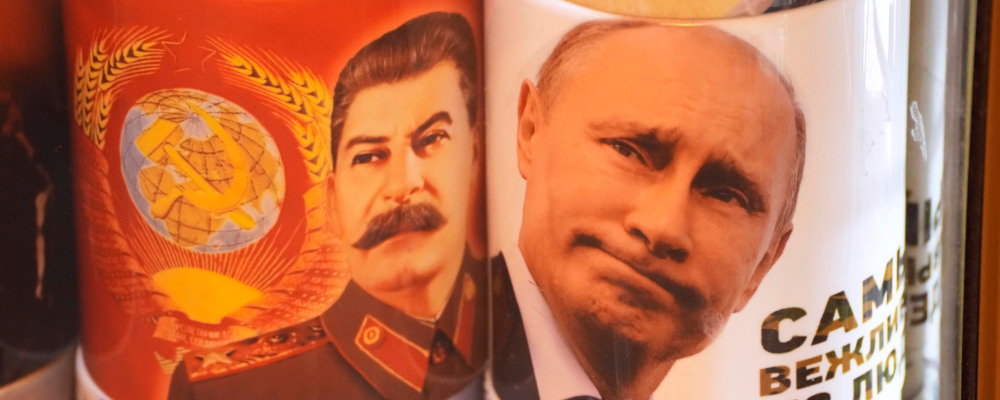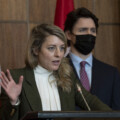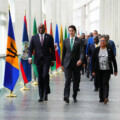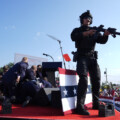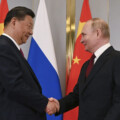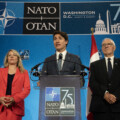Conservative leaders seem loath to mention health care in equal measure to journalists’ delight in raising it. John Ivison, a columnist at the National Post, took a stab at federal Conservative leader Pierre Poilievre last week: “You simply can’t aspire to be prime minister of Canada today and claim that health care has nothing to do with you.”
Ivison has a point. Endless headlines about health care demand a political response: for example, overcrowding in children’s hospitals, federal-provincial funding battles, and emergency department closures, to name a few.
Some leaders love to dilate on health care. Last week, Jagmeet Singh, leader of the federal NDP, threatened to withdraw support for his confidence-and-supply agreement with the Liberals. Singh demanded that the (federal) Liberals detail solutions for (provincial) health-care problems.
Ivison’s demand for details and Singh’s confidence to deliver, “When I’m prime minister,” rest on a shared assumption, a shared vision of how government should address health care. They assume health care is a factory to fix, and Singh knows just how to fix it.
Faulty logic
Their approach contains three problems. First, health care is not a factory. It is one of the most complex sectors of our economy. One tweak by government—for example, introducing national licensure for physicians—could have vast, unforeseen effects.
Visions of economic dials, levers, pipes, and pulleys have delighted central planners for decades. They are deceitful dreams, a feverish mirage. As Robert Heilbroner, erstwhile defender of socialism, famously admitted: the centrally planned economy was “the tragic failure of the twentieth century.”
The first problem misunderstands the nature of what we hope to fix; the second problem assumes we are smart enough to fix it. But if Singh became prime minister, his unstoppable confidence would meet the immovable fact of Hayek’s Knowledge Problem. Friedrich Hayek, the Nobel-winning economist, argued that economies cannot be controlled because there is too much to know. Especially in a service industry such as health care, individual needs, wants, and preferences determine performance. These inputs are internal to the patients themselves and the clinicians trying to care for them.
The third problem is the least obvious but most lethal. It assumes a purchaser can fix the provision of a product or service. Government pays for health care, ergo, government can fix health care.
What is obvious nonsense for every other product or service—from coffee to construction—somehow seems reasonable for health care. Purchasers cannot fix provision. True, a purchaser can influence providers to change behaviour by demanding different products and services. But purchasers have no idea how to reorganize, retool, or redesign to deliver change itself.
A Christmas wish list
Just as Conservative leaders are loath to talk about health care, the rest of us should be loath to offer advice. Politicians know politics; outsiders do not.
Furthermore, Conservatives represent a vast coalition of ideas, especially on health care. Red Tories support welfare in general and Medicare in particular. Prairie populists, classical liberals, libertarians, and a dozen other flavours of Conservative form a salad of mixed feelings. It requires fancy stickhandling to get through all the policy preferences, not just the ones at “centre ice“.
So, take this wish list in the innocence and earnestness of a child at Christmas.
- Show enthusiastic support for universal health insurance
Twenty-eight countries around the world have universal care. None of them have government monopolies like Canada. Universal just means everyone needs health insurance, in the same way that all cars on the road need to be insured.
Medicare started as state-funded medical insurance but morphed into managed care. In fact, some argue we should stop thinking about “medical insurance” as insurance at all. Do not let that happen. As long as Canadians remain comfortable and familiar with medical insurance we have a tiny sliver of room for change. If insurance becomes verboten, change will be much more difficult.
- Fix health-care governance
As The Hub published in April, “Medicare cannot change because it is locked in an iron triangle consisting of government, the medical profession, and public-sector unions.” And in another Hub article, it makes no sense to talk about policy, until we have fixed governance.
- Champion (local) innovation
Like politics, all care is local. Care plans must be allowed to evolve based on the needs of particular patients in specific communities. Bold visions and national plans tend to deliver one-size-fits-all services, the antithesis of patient-centred care. Only government can create a regulatory environment that fosters growth, innovation, and expansion of care at the local level.

The crucial element is to allow hypothesis testing to happen, not do it yourself. This means you need to find a way to let clinicians fail as they struggle to innovate towards better care. Easier said than (politically) done.
In summary, all I want for Christmas is for politicians to tell us what they believe about health care, tell us what they think is the biggest problem, and show us what only they can do. Again, this is a childlike Christmas wish. But given all the other advice out there this Christmas, perhaps this offers something new.
Merry Christmas!
Recommended for You

Ginny Roth: J.D. Vance, Pierre Poilievre, and how they slice their economic pie

David Polansky: As President Biden leaves the race, will the Democratic Party hodgepodge hold?

RCMP spending to protect MPs may have risen 112% since 2018, as Canadian politicians face greater rise in threats

Trevor Tombe: Canadians are paying billions in hidden taxes on new homes


